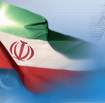Strengthening of Russia-Iran Alliance in Response to Western Threats and Sanctions

As the sanctions against the Russian government continue to be implemented by western nations, Moscow has been forced to look to Asia for economic and strategic partnerships. The Kremlin has been negotiating significant trade deals with two giants in the region for years now, with the prospect of a new geopolitical reality emerging if Russia, Iran and China continue to forge stronger ties into the future.
At the beginning of August, Russia and Iran signed a historic $20 billion oil deal which will see the two nations enhancing cooperation within the “oil and gas industry”, in addition to strengthening economic collaboration. The deal proposes that Russia will assist Tehran in developing its energy infrastructure along with purchasing Iranian oil, in exchange for Iran importing consumer goods and agriculture products including wheat, leather, pulses and meat. Further talks are set to take place at the Russia-Iran intergovernmental commission meeting in Tehran on September 9-10, which will see the details of the deal cemented.
Relations between the two nations are complex and have ranged from collaborative to hostile in the last few decades, with a degree of tension existing between Moscow and Tehran over many issues today. The Caspian Sea is one dispute that has strained relations between the five bordering countries since the collapse of the Soviet Union in the early 1990’s. Russia, Iran, Kazakhstan, Azerbaijan and Turkmenistan are unable to agree on the legal portion owned by each state, in a sea which is home to vast deposits of oil and gas. Iran has also been displeased by Russia’s support of United Nations Security Council Resolutions which have imposed sanctions on Iran over the past decade, stunting the development of the Iranian economy.
Yet the two nations have increasingly found themselves sharing the same geostrategic interests, especially in their support of Bashar al-Assad in his fight against western sponsored proxy forces in Syria. A closer strategic alliance with Iran could also benefit Russia through Tehran providing regional assistance to help stabilise the Caucasus and Central Asia. A vast amount of terrorist cells – which have close links to the CIA – have been active in the Caucasus for years now, in an effort to destabilise the underbelly of the Russia Federation.
A Resource Rich Alliance
The strength of Iran and Russia is underpinned by the two powers holding considerable deposits of oil and gas, and an increase in cooperation between Tehran and Moscow could be mutually beneficial considering the sanctions imposed on each state. Iran is a natural dominant player in the Middle East as it has the “fourth-largest proved crude oil reserves” on earth, along with the “world’s second-largest natural gas reserves”, in addition to having the 3rd largest population in the region – of over 80 million. Russia holds the largest natural gas reserves in the world along with the eighth largest proved crude oil reserves.
Moscow could be an essential importer of Iranian oil as the latest round of sanctions, imposed by the United States (US) and the European Union (EU) in 2011/2012, have had a sizable affect on the production and revenues received from the Iranian energy sector. Export revenues from oil and gas have plunged by 47% in the fiscal year 2012/2013 to $63 billion, according to the IMF, compared to an export revenue of $118 billion the previous year. Russia has also announced it will build a rail line in the North of Iran, running from the city of Rasht on the Caspian Sea to Astara on the Azerbaijan border.
The decision by western leaders to impose sanctions on Russia in March has pushed Moscow closer to Iran and China, as well as strengthening the BRICS group and the Eurasian Economic Community. In May, Russia and China agreed what was hailed by many analysts as the ‘deal of the decade’; when the two powers signed a 30 year gas deal totalling $400 billion. China and Iran also plan to boost trade over the next 10 years by a factor of 5, with trade expected to reach $200 billion by 2024, compared to $40 billion in 2013. Iran is a major supplier of crude oil to China with demand set to remain high as Beijing is now the largest net importer of crude oil, surpassing the US in September of last year.
If the trend continues into the future, the emergence of a Russian-Iranian-Sino alliance would come to dominate the continent of Asia, and if truly independent of western influence, would seriously challenge the Anglo-American international order.
Steven MacMillan is an independent writer, researcher, geopolitical analyst and editor of The Analyst Report, especially for the online magazine “New Eastern Outlook”.

